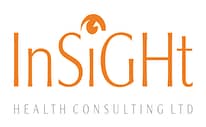Private Provider Readiness Sub-Grantee on Nigeria State-Led Strategic Purchasing for FP/MNCH Project
Client: Health Systems Consult Limited/ Bill & Melinda Gates Foundation
As a consortium partner, IHC spearheaded the provider readiness and quality improvement component of the SP4FP Project. This initiative aimed to assess the readiness of private healthcare facilities to deliver high-quality healthcare services. IHC conducted detailed assessments of over 500 private facilities, identifying gaps in service delivery and creating customized quality improvement plans for each facility. These efforts were targeted at improving maternal, neonatal, and child health (MNCH) services while supporting the facilities’ empanelment into the Lagos State Health Scheme.
To further enhance service delivery, IHC provided technical support to over 200 private healthcare providers. This support included capacity-building activities, the implementation of quality improvement strategies, and hands-on guidance to strengthen healthcare systems and processes. The results of the intervention were significant: 65.6% of the supported providers demonstrated improved quality scores based on standardized assessment criteria. Additionally, the average quality improvement score rose from 69% at baseline to 74% at endline.
IHC’s contributions to the project have been documented in key publications, including Enhancing Private Healthcare Effectiveness in Lagos State and Evaluating the Effectiveness of Quality Improvement Strategies in Mid-Level Private Healthcare Facilities in Lagos State
Project Management Support COVID-19: Mitigating Impact on Neonatal Mortality through Remote Training.
Client: American Academy of Pediatrics / The Bill and Melinda Gates Foundation
IHC provided comprehensive project management support for the initiative, including coordination, administration, logistics, and quality assurance. The project focused on improving neonatal outcomes through the training of healthcare workers using the NeoNatalie Live (NNL) device via the Helping Babies Breathe (HBB) platform and the Helping Mothers and Babies Survive (HMBS) platform. Training sessions were conducted remotely, followed by a six-month mentorship program to ensure the effective application of skills. The project was implemented in four sites: one in Borno, one in Gombe, and two in Yobe State.
The Helping Babies Breathe (HBB) program, an evidence-based educational initiative, aimed to equip healthcare workers with basic neonatal resuscitation skills to reduce newborn mortality and stillbirth rates. The program resulted in significant improvements in healthcare workers’ knowledge and practice of neonatal resuscitation, which directly impacted neonatal outcomes.
Key achievements of the project include:
- A marked reduction in the neonatal mortality rate, which decreased from 40.15 deaths per 1,000 live births at baseline to 24.67 deaths per 1,000 live births at endline.
- A significant drop in early neonatal mortality rates, from 27.55 deaths per 1,000 live births at baseline to 9.73 deaths per 1,000 live births at endline.
- Neonatal mortality due to birth asphyxia declined from 20.45 deaths per 1,000 live births at baseline to 6.85 deaths per 1,000 live births at endline.
- The number of live births admitted to or transferred to neonatal care units for asphyxia reduced from 31 cases at baseline to 20 cases at endline.
Additionally, the program recorded an increase in the number of deliveries across all four sites, reflecting enhanced trust in healthcare services and improved healthcare delivery systems.
Quality Improvement of Maternal and Child Health Services.
Client: DFID/Partnership for Transforming Health Systems – PATHS2
IHC supported the development and implementation of the Quality Estimation (QuEsT) tool, designed to assess and improve the quality of essential maternal and child health services. The tool integrated existing data elements from the DHIS2 platform and other relevant sources, enabling a comprehensive approach to scoring and tracking the quality of services provided in 69 supported facilities across Lagos and Enugu States.
Quality improvement plans were collaboratively developed for each facility, involving state stakeholders and Facility Quality Improvement (QI) teams. Scorecards were created for all 69 facilities, updated after each assessment round, and publicly displayed within the facilities. This public display demonstrated transparency and reinforced a commitment to ongoing quality improvement.
To track progress, baseline, midline, and end-line assessments were conducted, providing a comparative analysis of quality scores over time. These assessments allowed for the identification of gaps, monitoring of improvements, and evidence-based decision-making.
In addition, findings from the review and analysis of the Annual Operational Plan (AOP) 2011 were utilized to identify priority areas, which informed the development of the AOP 2012.
National Assessment of RH HIV service integration in 13 states.
Client: Family Health International (FHI 360)/USAID
IHC coordinated a national rapid assessment across 13 states in Nigeria to evaluate the extent of policy and service integration within the country’s healthcare system. The assessment aimed to document the level of integration of health services and policies, providing a comprehensive understanding of the current landscape.
Findings from the assessment highlighted the extent of integrated services and the policy environment in the healthcare sector. Additionally, changes and progress over time were systematically analyzed, offering valuable insights into trends, gaps, and areas requiring further improvement to enhance integration efforts.
Training for Quality Maternal and Child Health Services
Client: National Healthcare Development Agency / Subsidy Reinvestment and Empowerment Program (SURE-P)
IHC conducted quality improvement (QI) training to introduce key QI concepts to healthcare workers in SURE-P Maternal and Child Health (MCH) facilities across ten states in Nigeria: Anambra, Bauchi, Borno, Cross River, Ekiti, Kebbi, Lagos, Niger, Oyo, and Plateau. The training aimed to enhance the capacity of healthcare workers to deliver sustainable, high-quality MCH services that are effective, efficient, accessible, equitable, safe, and patient-centered.
In addition to healthcare workers, staff from the SURE-P Programme Implementation Unit were trained on strategies to ensure and sustain quality service delivery.
A total of 41 healthcare workers participated in the training, with the average knowledge score improving significantly from 23% pre-test to 70% post-test.



